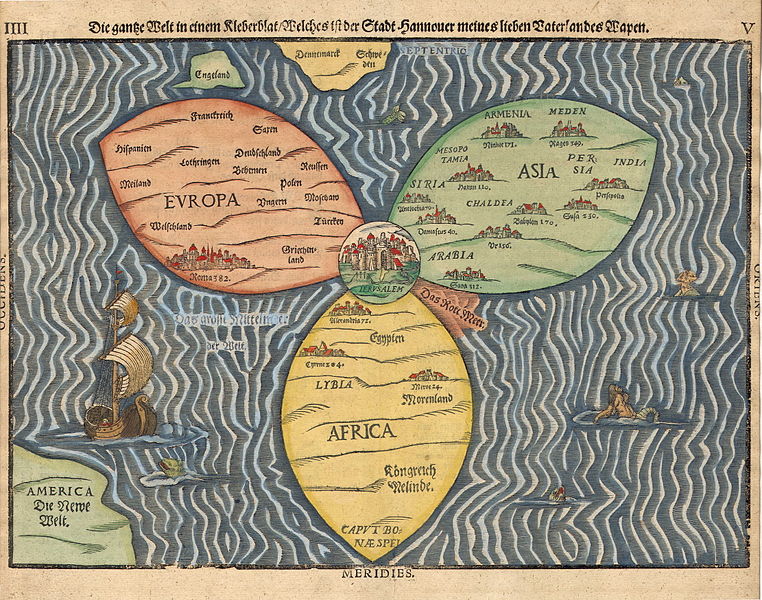“As the navel is set in the center of the human body, so is the land of Israel the navel of the world…” [i]

In chapter four of his book Faith in the Face of Empire: The Bible through Palestinian Eyes, Mitri Raheb examines the image of Palestine as the center - the omphalos – the navel of the world.
Ancient mapmakers often portrayed (at the
expense of accuracy) the geographic features of the world this way because it
conformed to the way they thought of the world. But while Palestine might be
the religious center for much of the world and while it might arguably be the
geographic center – it has never been the political center. Palestine has always been at the edge.
(Raheb, 49)[ii]
It is a land that has
been constantly fought over – but without any real concern for the land (or its
people). Successive empires have fought
over it, and in it, and for it – but only as a hedge against other powers. “Wars constitute reality in Palestine,” says
Raheb. “I know this not merely from history books but from my own
experience. I am just fifty years old
and have already lived through nine wars (Raheb, 51).”
 This long history of
occupation and wars for control has influenced the writing of our scriptures
and the way that we interpret them. “Being
a largely occupied land, liberation from occupation is a central theme
throughout history and plays a major role in the Bible.” Think through the story from Abraham leaving the
Fertile Crescent, through the sojourn in Egypt, the stories of conquest, the
conflict with Canaanite tribes, the political machinations of the kings of
Israel and Judah, the hope and warnings given by the prophets, the gospel of
Jesus… The theme of liberation and freedom runs all through the scriptures.
Yet, “maintaining control of the land and promoting the unity of its people
remain an uphill struggle (Raheb, 53 – 54).”
This long history of
occupation and wars for control has influenced the writing of our scriptures
and the way that we interpret them. “Being
a largely occupied land, liberation from occupation is a central theme
throughout history and plays a major role in the Bible.” Think through the story from Abraham leaving the
Fertile Crescent, through the sojourn in Egypt, the stories of conquest, the
conflict with Canaanite tribes, the political machinations of the kings of
Israel and Judah, the hope and warnings given by the prophets, the gospel of
Jesus… The theme of liberation and freedom runs all through the scriptures.
Yet, “maintaining control of the land and promoting the unity of its people
remain an uphill struggle (Raheb, 53 – 54).”
Chapter 3 - The Geo-Politics of the Middle East
[i] Midrash
on Ezekiel 38:12 – Tanhuma, Kedashim Ch. 10
[ii] Raheb,
Mitri, Faith in the Face of Empire: The Bible through Palestinian Eyes,
Orbis Books, Maryknoll, NY, 2014.
[iii]
How appropriate then, that from this marginal land should come a Marginal Jew…




No comments:
Post a Comment